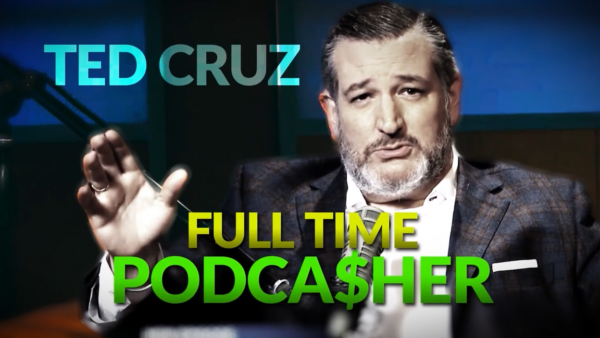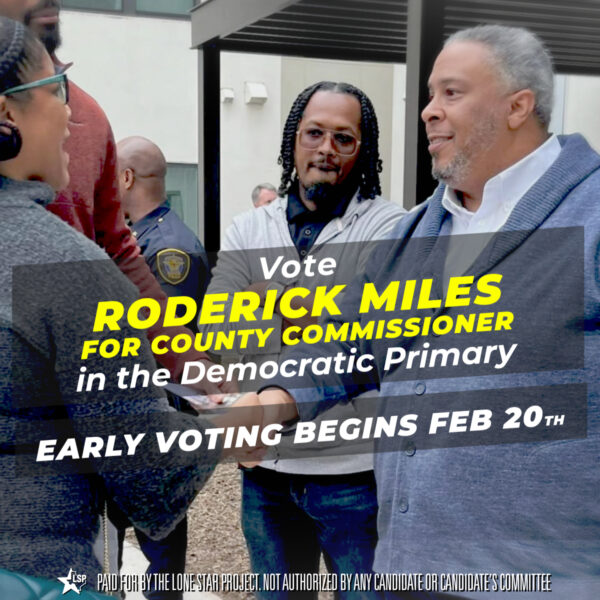Bitcoin billionaires have a problem. Their nearly unlimited ability to speculate, trade, convert, and hide cryptocurrency transactions may be coming to an end.
Over the last decade, cryptocurrency evolved and grew with little oversight or regulation. It has become a method for tax evaders, drug cartels, and human sex traffickers to launder and hide money. Too often, bad people get rich, and good people get robbed. Now, President Biden and consumer-friendly members of Congress want to put some rails up on cryptocurrency to protect investors and discourage criminal activity.
The bitcoin billionaires have a plan to push back and are starting in Congressional District 30 in Dallas. Two newly formed cryptocurrency SuperPACS are spending $2 million to support candidate Jasmine Crockett to put a member of Congress in place who will go to bat for them and push back against President Biden and consumer-friendly members of Congress.
The move is not subtle or clever. It’s a straight-up play-to-buy influence. And you can bet that no group spends $2 million in a district where they have no connections unless they are sure the beneficiary of their investment will carry water for them.
The Texas Justice Fund sponsored a radio ad pushing back against the bitcoin billionaires.
Further, The Dallas Morning News published an informed and thoughtful column by former Dallas/Fort Worth area Congressman Martin Frost on the bitcoin billionaire bid to buy CD30. It can be read below:


“Some of us have been arguing for real campaign finance reform for years. The need for this reform has a new poster child. It is special interest funding in the March 1 Democratic Primary in Texas Congressional District 30 and its name is cryptocurrency.
The Biden Administration is seeking to regulate cryptocurrency and this industry is trying to win new political friends to oppose the effort by jumping into select Congressional races across the country.
In the final weeks before the primary, two SuperPACs affiliated with the cryptocurrency industry are spending $2 million in independent expenditures to bolster the campaign of one of the nine candidates in the Democratic primary for U.S. District 30 to represent Dallas. These SuperPACS, which can accept unlimited contributions from wealthy individuals, corporations and partnerships, are buying television and radio ads to boost the campaign of Texas Rep. Jasmine Crockett.
Recent news reports say these and other cryptocurrency SuperPACS will spend at least $20 million this year to elect members of Congress who are friendly to them.
These PACs are the results of a 2010 Supreme Court case, Citizens United, which dramatically changed the rules for contributions in federal campaigns. Prior to the Citizens United decision, wealthy individuals could only contribute a limited amount directly to a federal campaign ($2,900 after indexing for inflation). Now, wealthy individuals can contribute unlimited amounts to SuperPACs and other entities (501c4s,) which can buy ads for and against federal candidates as long as the groups don’t directly coordinate with candidates.
I contributed $2,900 to one of the other eight candidates in this primary (Jane Hamilton); however, my $2,900 is a drop in the ocean compared to the $2 million being spent by the special interest cryptocurrency SuperPACs that are trying to buy the nomination for their preferred candidate.
This is particularly outrageous because the Democratic nomination in this district is tantamount to the general election, since this is an overwhelmingly Democratic district.
While in Congress, I was one of a handful of representatives who voted for a constitutional amendment to give Congress the authority to reform campaign finance laws to place limits on all types of contributions and spending in federal races.
Former Rep. Tom Davis, R-Virginia, and I wrote a book on Congress (“The Partisan Divide—Congress in Crisis”). Among the factors we cited as major sources of the partisan divide were gerrymandering and abuses in the campaign spending that gave special interests the leading role in the spending on federal races.
At this point, the only way to combat special interest spending in federal races is to shine the light of day on the way some groups are taking advantage of the system. The cryptocurrency special interest SuperPACs shouldn’t fly under the radar with massive amounts of spending in the closing days of a hotly contested primary in Texas. Let the sun shine in on their practices.”
Former Rep. Martin Frost, D-Dallas, represented the 24 District from 1979 to 2005. He is immediate past president of the Former Members of Congress and was chair of the Democratic Congressional Campaign Committee from 1995-1998 and chair of the U.S. House Democratic Caucus from 1999 – 2002. He wrote this column for The Dallas Morning News.




